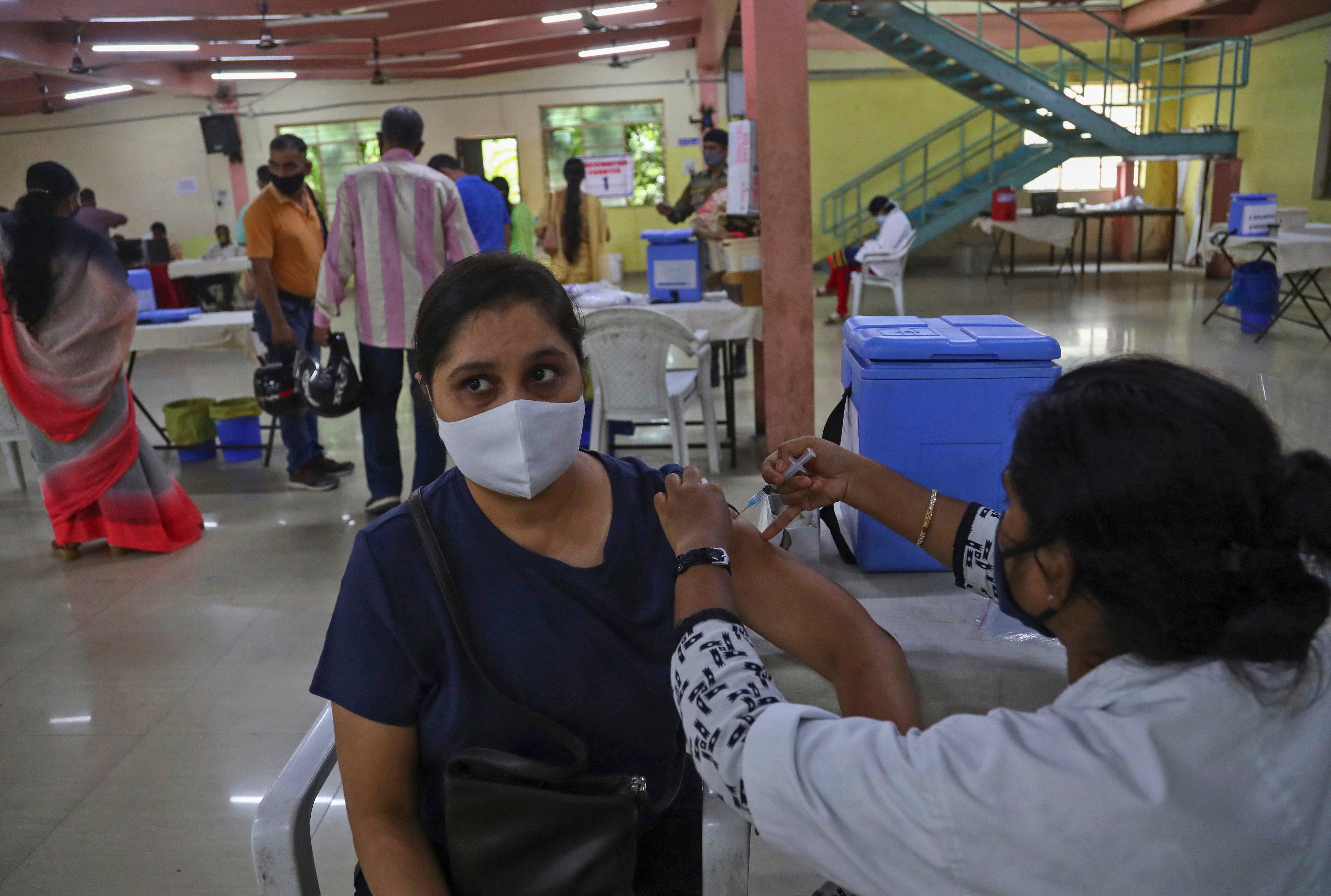Travellers vaccinated with AstraZeneca in India may not be eligible for EU ‘Green Pass’
Adar Poonawalla, whose company produces the AstraZeneca jab in India, says he has taken the matter up ‘at the highest levels’

Your support helps us to tell the story
From reproductive rights to climate change to Big Tech, The Independent is on the ground when the story is developing. Whether it's investigating the financials of Elon Musk's pro-Trump PAC or producing our latest documentary, 'The A Word', which shines a light on the American women fighting for reproductive rights, we know how important it is to parse out the facts from the messaging.
At such a critical moment in US history, we need reporters on the ground. Your donation allows us to keep sending journalists to speak to both sides of the story.
The Independent is trusted by Americans across the entire political spectrum. And unlike many other quality news outlets, we choose not to lock Americans out of our reporting and analysis with paywalls. We believe quality journalism should be available to everyone, paid for by those who can afford it.
Your support makes all the difference.People in India who have been inoculated with the Oxford-AstraZeneca vaccine may not be eligible for the European Union’s “green pass” scheme, according to reports.
The European Medicines Agency (EMA) recognises four Covid-19 vaccines: Comirnaty (BioNTech-Pfizer), Janssen (Johnson & Johnson), Moderna and Vaxzevria (Oxford-AstraZeneca).
Covishield, which is the branding for the AstraZeneca shot produced in India by the Serum Institute of India (SII), has been granted emergency use listing by the World Health Organisation but it is yet to be approved by the EMA. The EU’s drug regulator told The Wire it has not yet received an approval application for Covishield.
SII has produced hundreds of millions of doses of Oxford-AstraZeneca’s vaccine, millions of which have been exported to other countries including the UK, where they are not then branded as Covishield.
Top Indian virologist Shahid Jameel told The Wire that while batches of Vaxzevria and Covishield may be made by different manufacturers, the end products are qualitatively similar.
Addressing concerns of those vaccinated with Covishield, SII’s chief executive Adar Poonawalla said he had taken the matter up at the “highest levels”.
He said in a tweet: “I realise that a lot of Indians who have taken Covishield are facing issues with travel to the EU. I assure everyone, I have taken this up at the highest levels and hope to resolve this matter soon, both with regulators and at a diplomatic level with countries.”
The Economic Times said it has learnt that India’s foreign ministry has also already raised the issue with the EMA.
An AstraZeneca spokesperson said: “We are working closely with the EMA as they develop guidance to support opening of borders and relaxing restrictions, and this includes guidance on inclusion of Covishield as a recognised vaccine for immunisation passports.”
The EU’s vaccine certificate, the digital “green pass”, is due to come into effect from 1 July and aims to facilitate movement during the pandemic within the bloc. It will serve as a proof that a person has been vaccinated, received a negative test result or recovered from Covid-19.
The European Commission has said it also aims to ease restrictions on non-essential travel into the EU. For those travelling from a non-EU country, it said the rules for acceptance of proof of vaccination would be the same as for EU nationals.
This means that vaccines that have received EU-wide marketing authorisation have to be accepted, but individual member states can decide to also accept vaccines approved by the WHO, the commission said.
India is currently administering Covishield and Covaxin, a jab made by local firm Bharat Biotech which is yet to be approved by either the WHO or the EMA. The country has also started to roll out Russia’s Sputnik V, as it aims to inoculate all adults in India by the end of 2021.
Join our commenting forum
Join thought-provoking conversations, follow other Independent readers and see their replies
0Comments